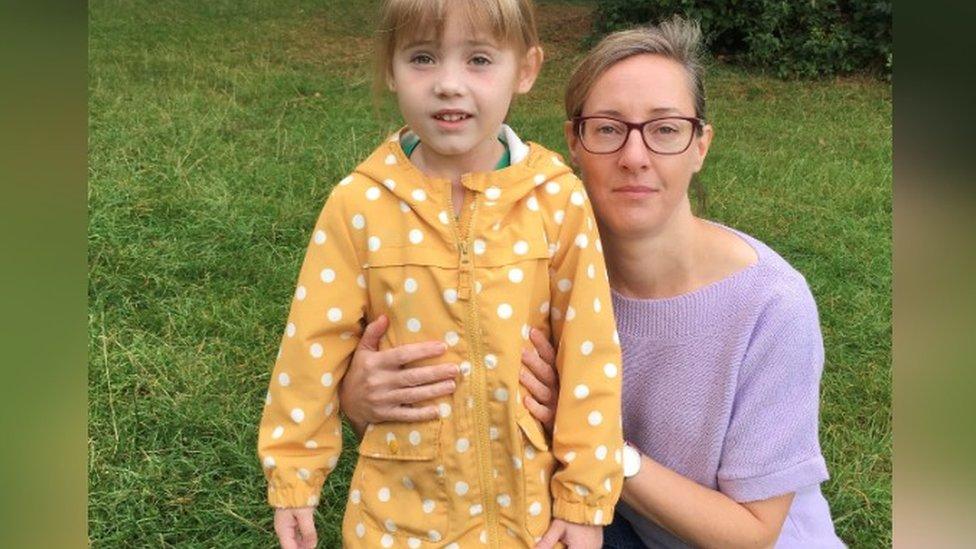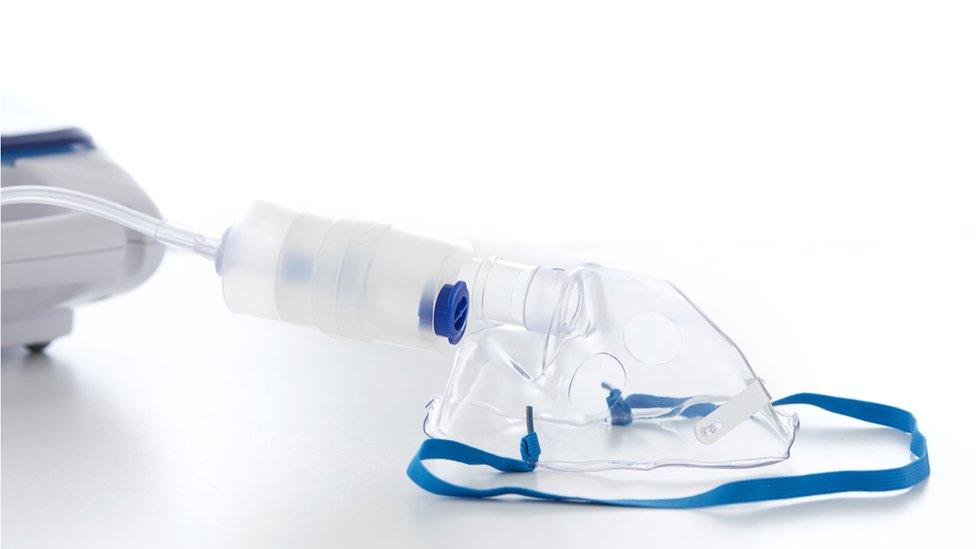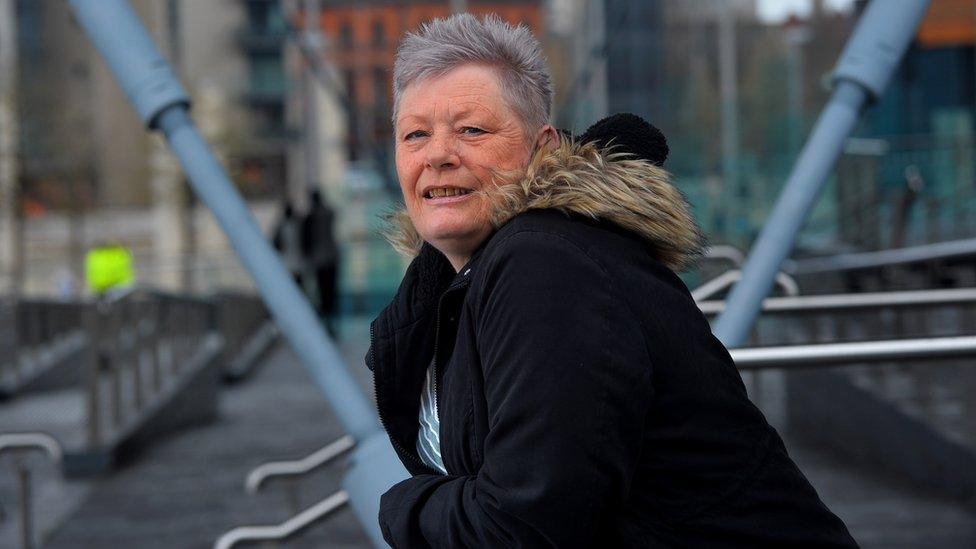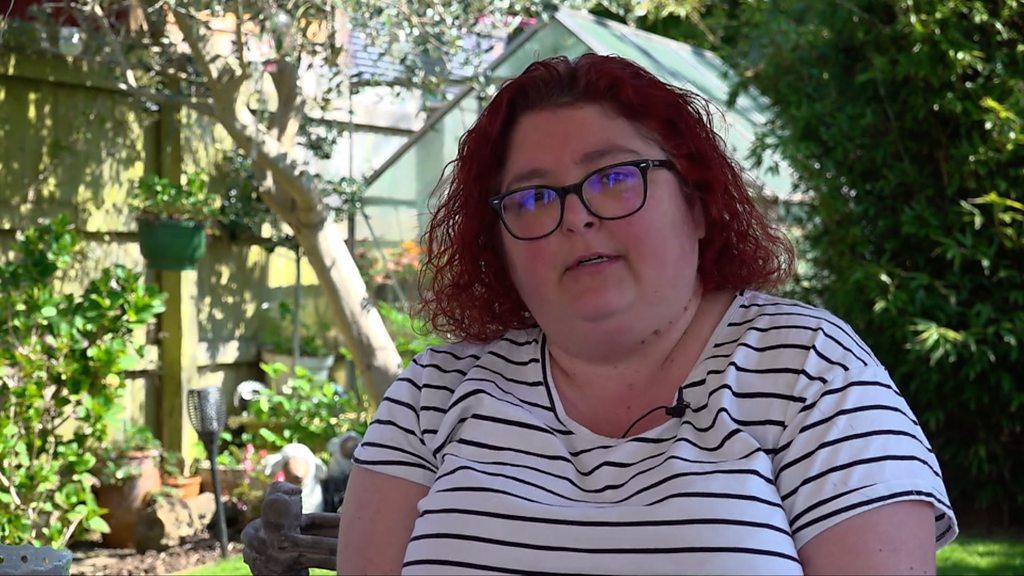Cost of living: Asthma charity warns of rising hospital admissions
- Published

Alice Spencer is worried for her and her daughters health this winter
A mother has said cutting back on heating is not an option for her and her daughter this winter due to their lung conditions.
It comes as one lung charity warned there could be a "tidal wave" of hospital admissions of people with lung conditions this year.
Asthma and Lung UK has said patients should receive tailored financial help.
The Welsh government said its Nest scheme, external offered free home improvements for those eligible.
Asthma and Lung UK said cold weather was causing people to cut back on heating, putting those with certain lung conditions at risk.
Alice Spencer, from Cardiff, has asthma, external, and her daughter has cystic fibrosis, external.
She said the cold weather exacerbates her symptoms and keeping warm was "really important" for her and her daughter's health.
She added: "My daughter has a lung condition and uses a nebuliser, external every day - up to four times a day if she is poorly - it's battery powered but needs charging regularly."
She said the main cost of using the equipment was cleaning, as it must be washed thoroughly after each use with boiling water.
"I worry that people may neglect the cleaning process to save money, this would them at risk of becoming sick", said Ms Spencer.

A nebuliser helps users breathe in medicine as a fine mist through a mask or a mouthpiece
About one in five people with asthma surveyed by Asthma and Lung UK said the soaring cost of living has caused life-threatening asthma attacks as they cut back on medicines, heating and food.
Half of the 3,600 people surveyed also said their condition had worsened since the cost of living crisis began, with many needing emergency treatment.
Asthma and Lung UK also said calls to its helpline had risen by 89% and website traffic had increased by 63%.
Liz Moore, from Cardiff, said she was also concerned about the winter ahead.
She has Chronic obstructive pulmonary disease (COPD, external) and said the drop in temperature had "massively affected" her lungs, as she needs a warm home to keep well.
"During the cold winter months, I get frequent chest infections which often leaves me struggling to breathe," she said.

Liz Moore says she wants to see more support from the Welsh government for people with lung conditions this winter
"Living with COPD means the drop in temperatures massively affects my health and wellbeing.
"As my bills increase, I no longer have any spare cash for emergencies. I am also really concerned about people turning to wood burning as an alternative to gas.
"Air pollution is already an issue in Cardiff, these high prices are only going to make people chose other options."
Ms Moore said the cost of living was affecting people like her the most and therefore more tailored support is needed.
Dr Andrew Whittamore, a GP and clinical lead at Asthma and Lung UK, said winter was the "deadliest time" for people with lung conditions.
He said: "Cold homes provide the perfect environment for respiratory infections to thrive.
"Cold air is a trigger for life-threatening asthma attacks and COPD flare-ups. In the longer-term, cold homes are a hotbed for mould and damp, which alongside cold air are also common lung triggers."
Asthma and Lung Cymru advised people with lung conditions should heat their home to at least 18C.
The Welsh government said improving the energy efficiency of homes is the most effective way we can support householders to reduce their energy bills.
"More than 67,000 homes have benefitted from our Warm Homes programme and we are also offering a £200 fuel support payment to help around 400,000 eligible households with their energy bills this winter.
"Our Nest scheme also offers free energy efficiency home improvements for eligible people on lower incomes who are living with a chronic respiratory condition."
Related topics
- Published26 April 2022

- Published27 April 2022

- Published3 October 2021
